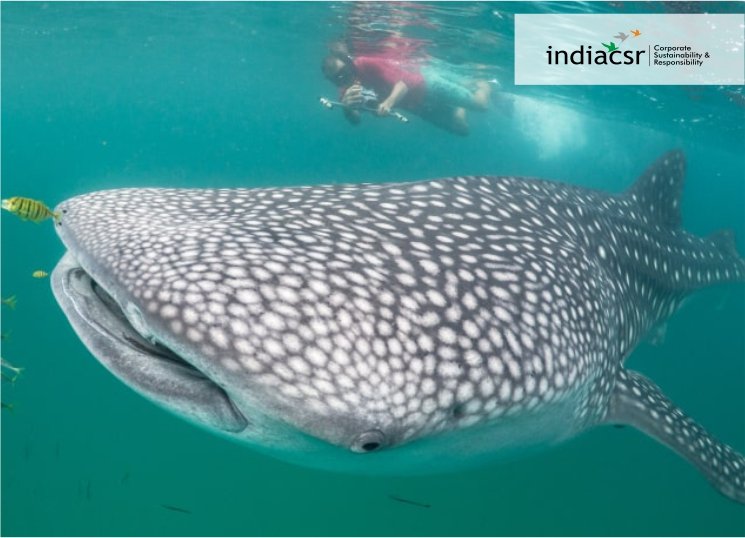Tata Chemicals Limited, a Science-led chemistry solutions company and is a part of the Tata Group, has rescued and saved 813 whale sharks in Gujarat coastal region till the year 2020-21.
The company runs ‘Save the Whale Shark’ project which included studies of its habitat, migratory pattern and breeding biology.
Tata Chemicals is only the company which runs large scale Whale Shark conservation project in India.
“During the year, 34 whale sharks caught accidentally in the fishing nets along the Saurashtra coast were rescued and released taking the total rescue figure since the inception of the campaign to 813.”, the company said.
The Company is also working with the Eco Clubs in schools at Mithapur to raise awareness on environment conservation.
Research work on whale shark biology including its feeding, breeding and migratory patterns is continuing, and this will help establish scientific knowledge about this species and help in its long-term survival.
Zero incidents of whale shark poaching have been reported along the Saurashtra coast.
It runs biodiversity conservation programmes relating to coral reef, whale sharks, mangroves and indigenous flora and fauna, along with environmental education initiatives at Mithapur plant.
Under the Greening programme, the Company planted 1.15 lakh mangroves in Dwarka, Gujarat and Sundarbans, West Bengal.
Its Nature Conservation also includes Coral Reef Restoration, Biodiversity Reserve Plantation, Marine Turtle Monitoring, Community Conserved Wetland, monitoring of Birdlife and running Eco Clubs.
The Company, which adopted biodiversity policy in 2020, is working on maintaining ecological balance and conserving natural resources through participatory approach for environmental sustainability.
Biodiversity conservation programmes continued at Mithapur with projects such as recovery of coral reef, conservation of whale shark, mangrove plantation, rejuvenating indigenous flora and fauna and environmental education initiatives.
Mumbai-headquarters company has spent over 3.21 crore in this conservation programme.
The whale shark is the largest fish and was once slaughtered along the Gujarat coast in large numbers for its oil and meat. This led to a steep decline in its population and hence, it was declared an endangered species in 2001.
The conservation programme is supported by various partners was launched in 2004. The programme has been creating conservation awareness amongst the coastal communities and garner their support for protecting this endangered fish.
This project is now in the advance phase and is being implemented in partnership with the Wildlife Trust of India and the Gujarat State Forest Department with support from the fishing communities of Veraval, Sutrapada and Dhamlej region.
(CopyRight@IndiaCSR)























